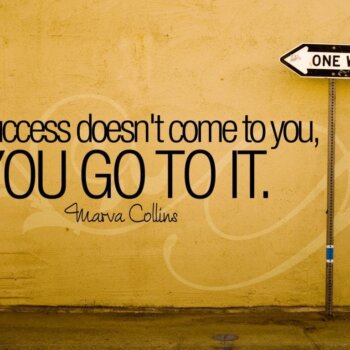When I was a young boy, I didn’t like school, and I wasn’t very good at it. My poor dad, who was the head of the Hawaii school system, pushed me to do well at school. For him, doing well at school equalled doing well at life. His idea of success was getting good grades so that you could get a good job.
My poor dad was very smart academically, but he was not very successful when it came to money. He constantly struggled from month to month, and by the end of his life he was penniless, having lost all his money on various bad business deals.
My rich dad also believed in a good education, but one that focused on financial education. “You need to learn how money works so that you can make it work for you,” he said. For him, success was being an entrepreneur and a smart investor.
My rich dad didn’t even finish school, and he wasn’t very good at it while he was there. But as a young man, he did help run his family store, and he gained significant street smarts. He used that education to build an empire of his own. At the end of his life, he was extremely wealthy, passing on a financial legacy to his son, my best friend Mike.
Today, education is changing. While most kids still don’t learn about money and business through high school, university business schools are now offering entrepreneurship programs, conferences, and networking events for those interested in building their own businesses.
I have mixed feelings about this. I think any attempt to further the cause of entrepreneurship is admirable. But I also know that being successful as an entrepreneur can rarely be taught in class.
Matt Clark, the owner of Amazing Academy was taught entrepreneurship at the Wolff Center for Entrepreneurship at the University of Houston. Matt felt that his education was very helpful, but until he was able to put it into practice, the lessons did not mean nearly as much.
Entrepreneurs have to be flexible and nimble, how to adapt to changing circumstances quickly and effectively. Entrepreneurs have to have spirit. They have to fight for everything and push through adversity. Those lessons do not come from school. They come from life. Those lessons make one, “street smart”.
So, do entrepreneurs need to be “smart” to be successful? Yes… just not in the way most people think of “smart”.
The best-selling author of ‘Rich Dad Poor Dad, Robert Kiyosaki will be speaking in Kuala Lumpur from 10-11 November 2015 at the Masters of Wealth 2015 Malaysia at One World Hotel, Petaling Jaya, who will be joined by a panel of seven speakers.
The Asian Entrepreneur is the strategic partner of the Master of Wealth 2015 seminar.
The Masters of Wealth (MOW) is a 2-day landmark event staging Robert Kiyosaki and seven other international speakers in one location to help existing-and-future business leaders, entrepreneurs, investors and interested individuals to achieve outstanding results in an increasingly competitive world.
Get 15% discount on your ticket by going to http://www.mastersofwealthmy.com/tae































